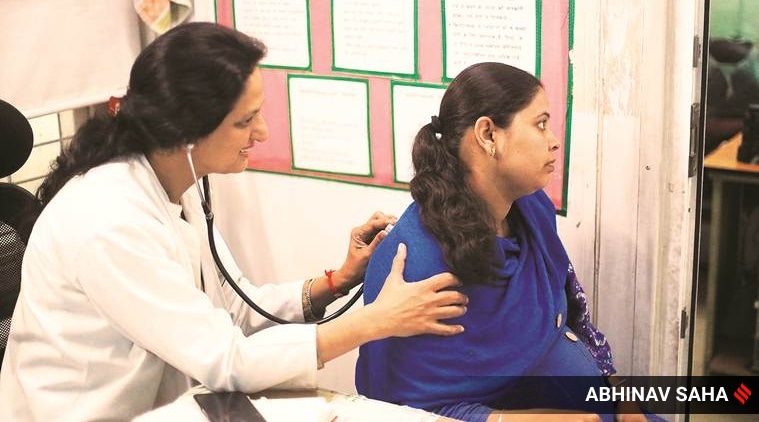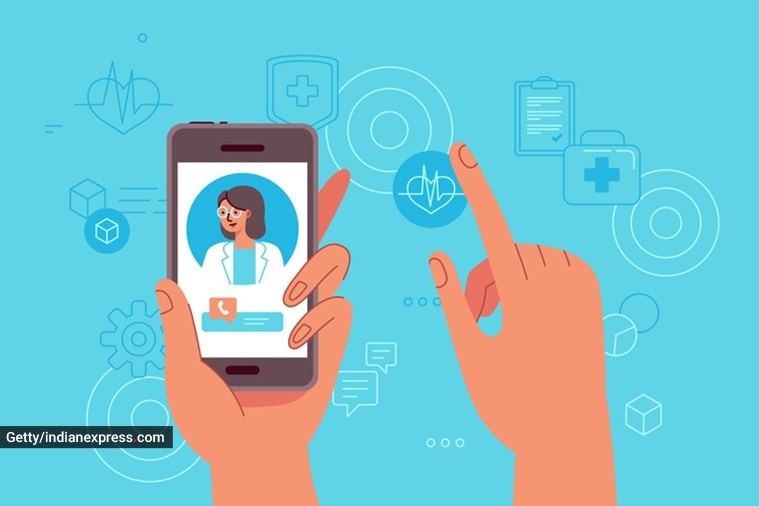
The Indian Express
Visiting a hospital during the pandemic? Keep these pointers in mind
If a visit to the hospital can't be avoided, count on these expert tips to stay safe.
by Lifestyle DeskIf you are dealing with a non-coronavirus medical issue, should you be visiting a hospital at all? This is a legitimate concern, given that the pandemic persists with cases still being reported from many parts of the country and the world. For those in a bind, especially if a loved one is facing a medical emergency during this time, here is a ready reckoner from experts on your plan of action.
Considering healthcare experts and facilities are dealing with all kinds of patients, “hospitals are more infection-prone given the present circumstances”, commented Dr Vikas Maurya, director and head, department of pulmonology and sleep disorders, Fortis Hospital, Shalimar Bagh, New Delhi. “We should go to the hospital only if it absolute necessary. As government has already approved tele-consults, it can be used for routine or minor problems. But in case there are heavy issues that can’t be handled at home, we can go to the hospital, but with precautions,” he asserted.
What precautions can you take?
As per Indian Medical Association Hospital Board of India’s guidelines, COVID-19 – Role of Hospitals and Healthcare Professionals, hospitals should restrict visits of non-essential visitors except for certain situations, such as an end-of-life situation.
It also mandates that visitors must be over 18 years of age. As per the guidelines, it is also necessary for visitors to practice good hand hygiene. “When visiting, visitors should wash hands with soap and water or use an alcohol-based hand sanitiser before entering and upon exiting the patient’s room,” the guideline states.
As per WebMD, doctors and clinics are to prioritise urgent and emergency visits at present. Elective procedures like mammograms, colonoscopies among others are being delayed given the current circumstances. So if you have any previously scheduled surgeries, it is best to first tele-consult your doctor and avoid hospital visits considering your weakened immunity as well.

Dr Maurya recommended that patients should keep their visits “short”, among other measures. “Take a prior appointment. Wear a medical or cloth mask. Carry hand-santiser; clean your hands regularly. Follow respiratory etiquette. Maintain social distancing, keep yourself away from other patients by at least 1.5 metres or three feet. Be clear in your mind about the questions you have to ask, to spend less time at hospital. Come back and immediately wash your hands and face. Also discard your mask without touching the outer surface, or wash it, if it is a cloth mask,” he mentioned.
ALSO READ | Explained: Types of human coronaviruses and the symptoms they cause | Explained: How coronavirus attacks, step by step | Explained: Can you get the coronavirus infection from your food? | Telemedicine is the new call for action at the moment
Dr Jyoti Mutta, senior consultant, microbiology, Sri Balaji Action Medical Institute gave some more tips.
*Take only one healthy adult along with you to take care of things. This is important to avoid crowding and increase the risk of infection.
*Wear a surgical mask and gloves, and avoid touching the face once you leave for the hospital. Sanitise your hands or take a shower as soon as you get back home. Maintain social distancing very strictly and other basic precautions to reduce the risk of infection.
*Bring all necessary documents along in order to avoid the next visit and make the doctor’s work easier.
*Avoid touching anything at the hospital premises. Open doors with elbows if possible.
*After coming back from hospital, take shoes off at the door, sanitise your hands at the door, and go straight to the bathroom without touching anything. Take off the clothes and put them in detergent water to wash. Taking bath with soap is advisable or wash your face, hands and every visible area on the body with soap.